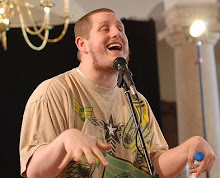
It is the Middle East's answer to Pop Idol. Now in its third season, the weekly, live, three-hour programme makes celebrities out of its contestants and reaches an audience of some 17 million across the Arab world. The show features text message voting and a glitzy presentation, and people queue up outside the 2,000 seat Al Raha Beach Theatre in Abu Dhabi to be part of the audience.
The show may have all the hallmarks of a shiny, western talent show but it is very much of the Middle East. Entitled Millions' Poets, contestants recite their own poetry, composed in a traditional Bedouin style called Nabati which dates back to the fourth century. The live audience in the theatre is segregated, with men and women seated in different sections, yet women poets compete alongside men on stage.
"When we designed this show we had in mind the grandness of Who Wants to be a Millionaire and the suspense of Pop Idol, " says Nashwa Al Ruwaini, Millions' Poets producer and head of the show's production company, Pyramedia. "The idea was to create a new format that would appeal to this part of the world without offending this part of the world."
The Abu Dhabi Authority for Culture and Heritage (Adach) commissioned and pays for the show as part of a bigger initiative by the biggest Emirate to raise the cultural bar in the Gulf. Millions' Poets costs 70m dihrams (£14m) to produce per season, including the 27m dihrams in prize money.
"It started here in Abu Dhabi but even I was surprised to learn that there are Nabati poets in many countries like Libya, Nigeria, Morocco, Egypt and Algeria as well as the Gulf. We found out Bedouins are everywhere!" says Ruwaini.
The Millions' Poets phenomenon has spurred the launch of a dedicated satellite channel for re-runs, a website that gets millions of hits, a magazine and, soon, a specially-designed iPod preloaded with Millions' Poets' poetry.
But perhaps the most surprising result of the show is the fact that in the current season a Saudi poetess called Ayda al-Jahani, who is completely veiled, is in contention for the top prize. "We have had poetesses before but not as strong as this woman," says Ruwani. "Saudi is quite conservative but people are sending their votes. It was unheard of to mention a woman's name, much less have her on stage, getting votes! This show has helped create social change."
by Kate Bulkley, The Guardian

No comments:
Post a Comment